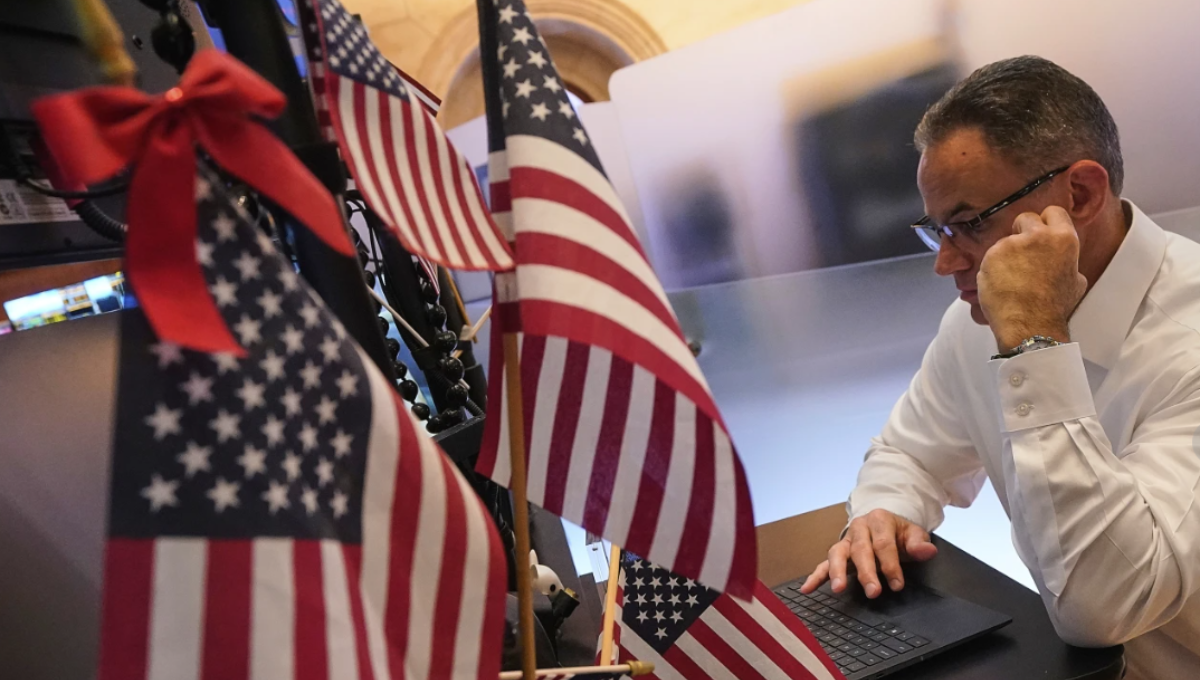U.S. stock indexes moved slightly upward on Wednesday as Wall Street awaited a crucial jobs report that could shed light on the strength of the labor market amid ongoing uncertainty surrounding President Donald Trump’s tariff policies.
The S&P 500 rose 0.3% in afternoon trading, positioning itself to potentially set a new record for the third time in four days. Meanwhile, the Nasdaq composite gained 0.8%, while the Dow Jones Industrial Average dipped by 50 points, or 0.1%, as of 1:49 p.m. Eastern.
Bond markets were mixed ahead of Thursday’s employment data, which is expected to show continued job growth—though likely at a slower pace than in May. However, a surprising report released earlier Wednesday sparked fresh concerns. Data from ADP indicated that private-sector employers cut 33,000 jobs last month, far below economists’ expectations of a 115,000-job increase.
Nela Richardson, chief economist at ADP, noted that despite a low number of layoffs, there was hesitation in hiring and a reluctance to replace departing workers, contributing to the net job losses.
Though ADP’s report often diverges from the federal government’s monthly employment data, the unexpected drop has heightened anxiety. Many fear that the uncertainty surrounding Trump’s trade tariffs may be prompting businesses to slow or freeze hiring.
Most of Trump’s proposed tariffs remain on hold but are scheduled to take effect in about a week unless new agreements are reached. If implemented, the tariffs could strain economic growth and worsen inflation.
Trump announced on Wednesday that he reached a trade agreement with Vietnam: U.S. products will face zero tariffs there, while Vietnamese goods will be subject to a 20% U.S. tariff. The news boosted Nike’s stock by 3.8%, as roughly half of its shoes were produced in Vietnam in fiscal year 2024.
Other developments could also influence the labor market. The U.S. government’s decision to end protected status for 350,000 Venezuelans could lead to deportations and a potential loss of up to 25,000 jobs, according to Goldman Sachs economist David Mericle, who expects weaker job figures than many of his peers.
In the bond market, the 10-year Treasury yield climbed to 4.30% from 4.26%. The two-year Treasury yield, which reflects expectations for Federal Reserve interest rate changes, remained steady at 3.78%.
If job growth weakens unexpectedly, the Fed could be pushed to cut interest rates to support the economy. So far this year, the Fed has signaled a cautious approach, waiting to see how tariffs play out before making any policy changes. President Trump, however, continues to pressure the Fed to lower rates more quickly.
On the corporate front, Tesla shares rose 4.6% after the company reported stronger-than-expected deliveries of its Model 3 and Model Y vehicles last quarter, totaling nearly 374,000. Still, overall sales dropped 13% year-over-year, and concerns remain about the impact of Elon Musk’s political visibility on customer interest.
Constellation Brands also gained 4.3% despite a quarterly profit that came in below analysts’ estimates. The maker of Modelo and Robert Mondavi wines noted weaker demand in industries like construction—referred to internally as “4,000 calorie+” sectors—but reaffirmed its financial outlook for the year.
On the downside, Centene’s stock plunged 39.7% after the health insurer withdrew its annual profit forecast. The move followed troubling early data showing worsening illness trends across several key states.
Internationally, global stock performance was mixed ahead of the July 9 deadline for potential trade deals that could avert the next wave of Trump’s tariffs. France’s CAC 40 rose 1%, and Hong Kong’s Hang Seng gained 0.6%, while Japan’s Nikkei 225 slipped 0.6%, and South Korea’s Kospi fell 0.5%.
Also Read:
Wall Street Divided as Tesla and Tech Stocks Fall While Broader Market Gains














